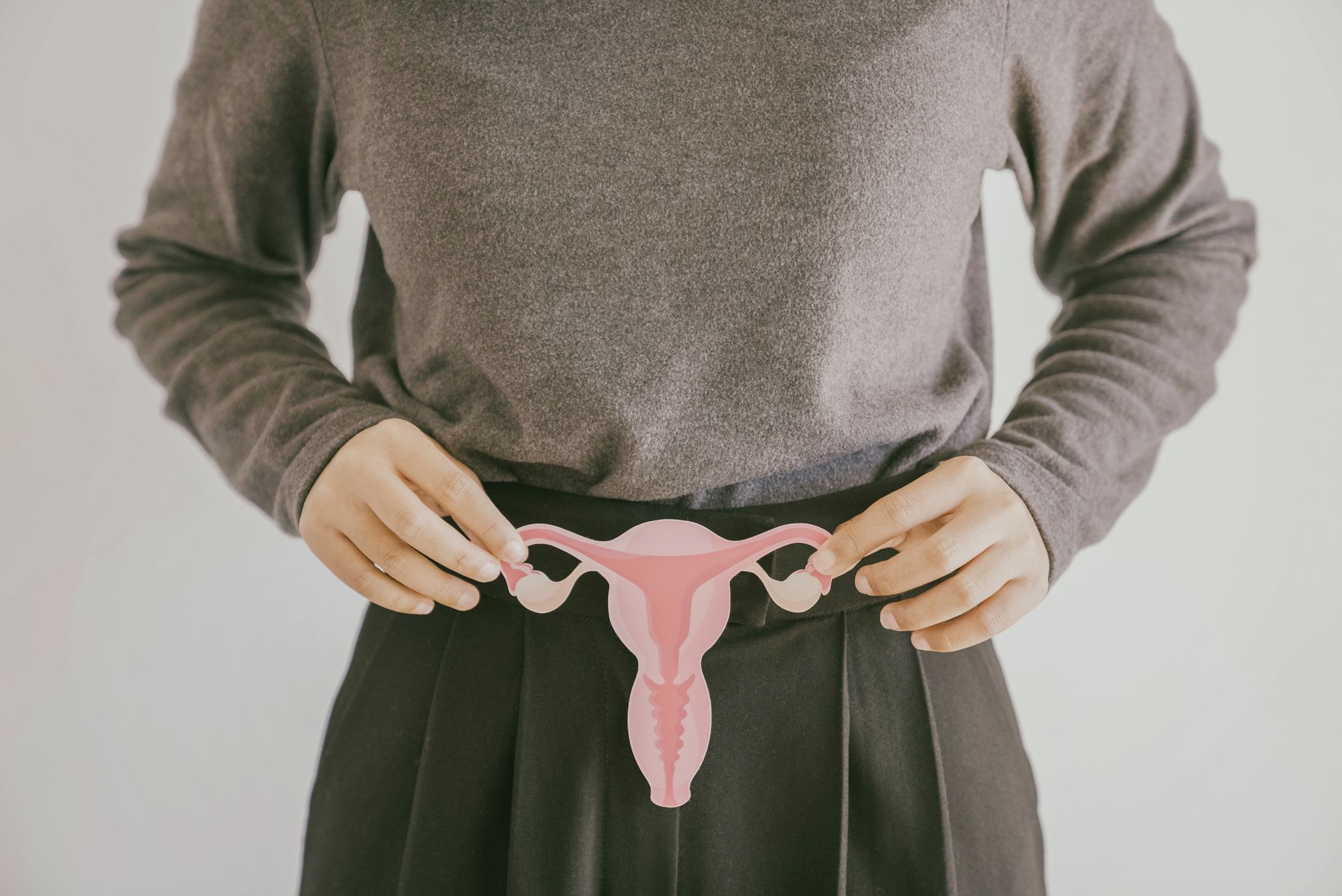What Should Your Diet and Training Plan Look Like If You Have PCOS?
Does having PCOS mean you'll face more difficulties trying to lose weight—and what does that mean for your diet and training plan? Answers here.

While your mom, sister, and friends may describe their cycles as “clockwork”, your period comes and goes as it pleases 🤷♀️
You’re growing hair in unexpected places — and at shocking speeds. You can shave in the morning, then have a nearly full-blown goatee by 3 pm (*ahem* definitely not speaking from personal experience). Oh, and the acne! Who said your face would magically clear up once you reached your mid-20s? Such lies.
Check, check, and check? Then you likely have PCOS (here's a sneaky high-five).
Now, there's been a lot of rumors going around, like how individuals with PCOS:
- Have a slower metabolism and, thus, will find weight loss more challenging
- Need to eat a low-carb diet to improve their insulin resistance
- Cannot do X exercise(s) because it (or they) will exacerbate PCOS symptoms
Keyword: rumors. So, what’s the actual truth? How should you plan your diet and training if you have PCOS and are keen on losing weight?
Understanding polycystic ovarian syndrome (PCOS)
Here’s the official definition: polycystic ovarian syndrome (PCOS) is a hormonal disorder common among women of reproductive age.
The exact cause of the condition remains unknown. But what scientists do know, however, is that the following factors may play a role:
2️⃣ Low-grade inflammation: Women with PCOS often experience low-grade inflammation that stimulates ovaries to produce androgens.
3️⃣ Hereditary: Research suggests that certain genes may be linked to PCOS.
4️⃣ Excess androgen: The ovaries produce abnormally high levels of androgens, resulting in hirsutism — the excessive growth of dark or coarse hair in a male-like pattern — and acne.
Is a low-carb diet good for PCOS?
OK, so if you have PCOS, you will likely have insulin resistance.
If you spend time combing through online forums and articles, you'll likely get acquainted with this popular sentiment:
- Those with insulin resistance (which is most people with PCOS) will find it more challenging to lose weight, AND
- Only a low-carb diet (like the keto diet) can improve insulin resistance, in turn, promoting weight loss
But guess what? This sentiment is misguided. And is, in fact, scientifically incorrect.
- When calories are controlled, there is no difference in weight loss between individuals with insulin resistance and those without. Take this study published in Metabolism, for instance. After putting participants through a calorie-restricted diet for four months, researchers found no difference between the weight loss in the insulin-resistant and the insulin-sensitive groups. The validity of the study’s results is supported by this 2017 meta-analysis that examined weight loss in women with and without PCOS: it found no difference in weight loss between PCOS vs. non-PCOS groups.
- A low-carb diet isn't the only — or best — way to improve insulin resistance. Yes, really. The truth is that when calories and protein are matched between diet types, research shows that low-fat and low-carb diets are equally effective at improving insulin resistance in the long term.
What’s the takeaway here? What should your diet look like if you have PCOS? Ah, be patient. We’ll cover that in a bit. But first, let’s talk about your training plan.
Are there specific exercises you should (or should not) do?
Contrary to popular belief, women with PCOS do not necessarily have to stick with "gentler" exercises like yoga and steady-state cardio. There is no evidence that high-intensity activities, like weightlifting or HIIT, will exacerbate PCOS symptoms.
In fact, research consistently highlights the importance of regular physical activity, no matter what kind — cardio, strength training, HIIT — to women with PCOS.
The same physical activity recommendations apply; you'd need at least:
- 150 minutes of moderate-intensity physical activity AND
- 2 days of muscle-strengthening activity
There’s no such thing as a “PCOS diet” or “PCOS training plan”
Alright, so what's the takeaway? It's this: even if you have PCOS, the same principles for effective weight loss apply — you don’t have to do anything different with your diet or training plan. More specifically, here’s what you’ll want to do:
🥩 (or 🧆) Prioritize your protein intake: The benefits of protein cannot be overstated. It fuels your muscles. Keeps you satiated. And so much more. So, always make sure you’re getting enough of this mighty macronutrient.
🏃🏽♀️ Find an exercise routine you enjoy: It doesn't matter what exercise you do. All you have to do is find something you enjoy because it'll help you stay consistent with it. Of course, it'll be ideal if you could make it a mixture of cardio and strength training — for optimal heart, muscle, and bone health.
🛌 Make time for recovery: Even if you're not looking to put on muscle mass, recovery is still important because it lowers your risk of injuries, keeps your workout fresh, and gives your body (and mind) time to rest. Here are a few things you could do on your rest days.
Ready to get started on your fitness journey?
Think you’ll enjoy lifting weights? Excited at the thought of joining a gym? Then you’ll want to check out GymStreak — the smart, AI-powered personal trainer app that’ll:
- Plan all your workouts for you (according to your unique training goals, ideal exercise frequency, and equipment availability)
- Guide you through proper exercise execution
- Connect you with fitness resources you’ll love
- … AND MORE
Get Started On Your Fitness Journey With GymStreak
We'll guide you through it all — step-by-step. Just download the app, and you'll be on your way to living your best life with PCOS.
References
Ashraf, S., Nabi, M., Rasool, S. ul A., Rashid, F., & Amin, S. (2019). Hyperandrogenism in polycystic ovarian syndrome and role of CYP gene variants: A review. Egyptian Journal of Medical Human Genetics, 20(1), 25. https://doi.org/10.1186/s43042-019-0031-4
Gardner, C. D., Trepanowski, J. F., Del Gobbo, L. C., Hauser, M. E., Rigdon, J., Ioannidis, J. P. A., Desai, M., & King, A. C. (2018). Effect of Low-Fat vs Low-Carbohydrate Diet on 12-Month Weight Loss in Overweight Adults and the Association With Genotype Pattern or Insulin Secretion: The DIETFITS Randomized Clinical Trial. JAMA, 319(7), 667–679. https://doi.org/10.1001/jama.2018.0245
Kataoka, J., Tassone, E. C., Misso, M., Joham, A. E., Stener-Victorin, E., Teede, H., & Moran, L. J. (2017). Weight Management Interventions in Women with and without PCOS: A Systematic Review. Nutrients, 9(9), E996. https://doi.org/10.3390/nu9090996
McLaughlin, T., Abbasi, F., Kim, H. S., Lamendola, C., Schaaf, P., & Reaven, G. (2001). Relationship between insulin resistance, weight loss, and coronary heart disease risk in healthy, obese women. Metabolism: Clinical and Experimental, 50(7), 795–800. https://doi.org/10.1053/meta.2001.24210
Repaci, A., Gambineri, A., & Pasquali, R. (2011). The role of low-grade inflammation in the polycystic ovary syndrome. Molecular and Cellular Endocrinology, 335(1), 30–41. https://doi.org/10.1016/j.mce.2010.08.002

